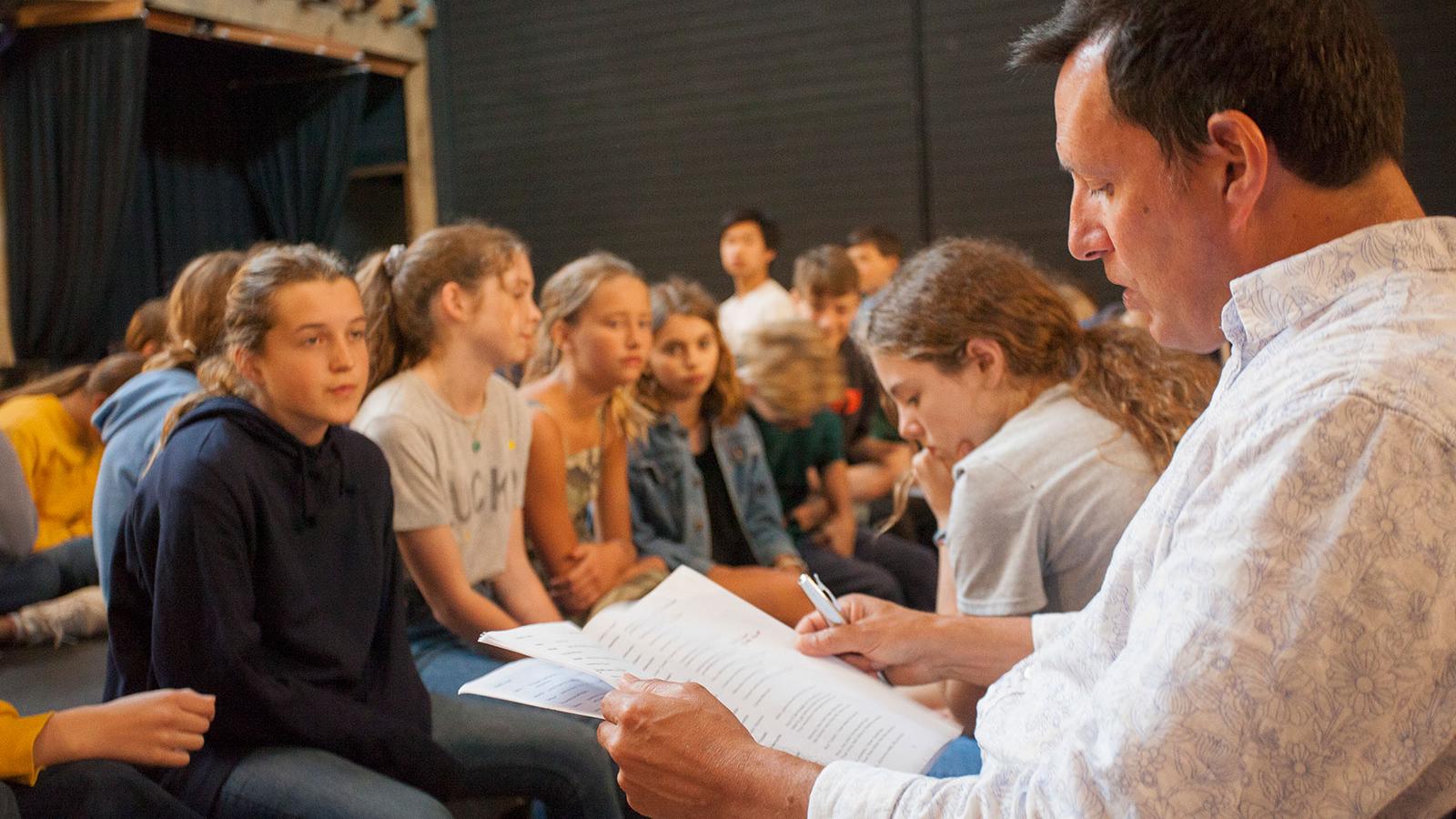
What makes a good teacher at Dunhurst?
Someone who is passionate about their subject, gets on well with everybody, is flexible, prepared to take life as it comes and has a good sense of humour… actually, that last one is essential for teaching full stop!
What are you trying to encourage and instil in your pupils?
An absolute passion for performance arts and a real appreciation of theatre, working with other people and creating stories. Also, something that will nourish them for the rest of their lives. Drama isn’t just about producing actors, it’s about creating well rounded people.
Apart from your teaching role, what else do you get involved with at the school?
I’m a houseparent at Dunhurst, so I'm busy running the boys’ boarding house. I work very closely with the girls’ housemistress and we run it very much like a family. I’m responsible for the Dunhurst JAW programme, organising speakers from all walks of life, from people in the media, cinema and theatre, to explorers, journalists and human rights advocates. I also run some activities, including a Manga comic book activity, where we watch cartoons and draw comics, and a filmmaking activity, where we produce short films.
In your opinion, what makes Dunhurst special?
Dunhurst is special because there’s a real vitality to it. When you come through the front door, you can really sense that something amazing is going to happen. At Dunhurst, the children can be who they are, say what is on their mind and they’re very much heard – staff and pupils are equal. For a child that is incredibly empowering.
What is your best memory of Dunhurst?
A long time ago, I wrote a play to go with an operetta that was originally performed at a concentration camp. Through research, I was able to write about the operetta’s character, but one day, one of my contacts in Germany said to me, “Do you know, the real person you based your character on is actually still alive?”
I got in touch with him, flew him out to the UK and he stayed for a week at Dunhurst. At the start of each production, he came on stage to introduce the show. He had been in a concentration camp as a 13-year-old and he was able to talk to the children about it. More than anything, it was about humanity and the survival of human spirit.
Very bizarrely, there were some girls who were appearing in the play and their grandfather had been at the same concentration camp. They told him about it and he flew over for the weekend, and both of the men came on stage together at the end of the last performance. It was incredible. One of the most inspiring things about that was that it showed you can achieve anything.
Who or what inspires you?
Emma Rice, theatre director; Philip Pullman, author; Herge, artist; Rabindranath Tagore, poet.
